Turkey v Syria's Kurds v Islamic State
- 19 February 2016
- Middle East
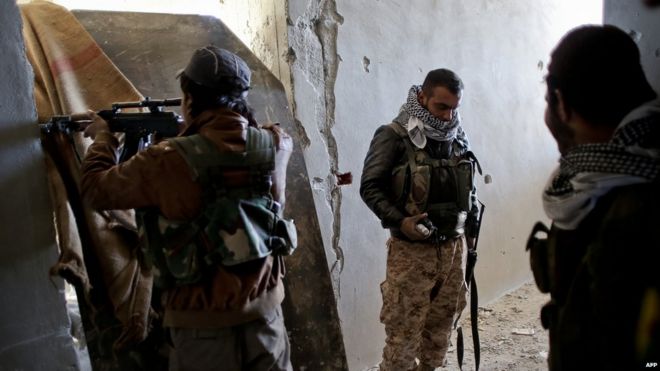 AFP
AFP
Turkey has renewed its bombardment of Kurdish fighters of the People's Protection Units (YPG) inside Syria, prompting calls for restrain from the UN, US and EU.
Ankara says it is retaliating against what is calls provocations by the YPG, but it has long-warned against the YPG making territorial advances in northern Syria near its border.
Why is Turkey hostile to Kurdish rebels in Syria ?
Turkey views the YPG as an extension of the Kurdistan Workers Party (PKK), a Turkish-Kurdish rebel group fighting for autonomy since the 1980s.
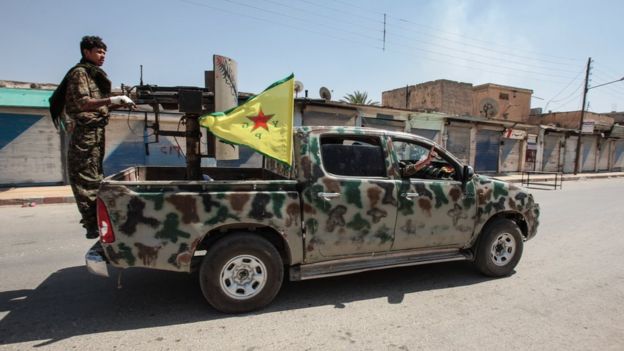 Getty Images
Getty Images
A ceasefire between Turkey and the PKK ended last year and clashes have since claimed hundreds of lives on both sides.
While Turkey is fighting against the PKK on its soil, neighbouring Syrian Kurds continue carving out a self-declared autonomous region known as Rojava, and the YPG has gained the trust of Turkey 's international allies in the fight against so-called Islamic State (IS).
What is the international reaction to Turkey's bombing of Kurds?
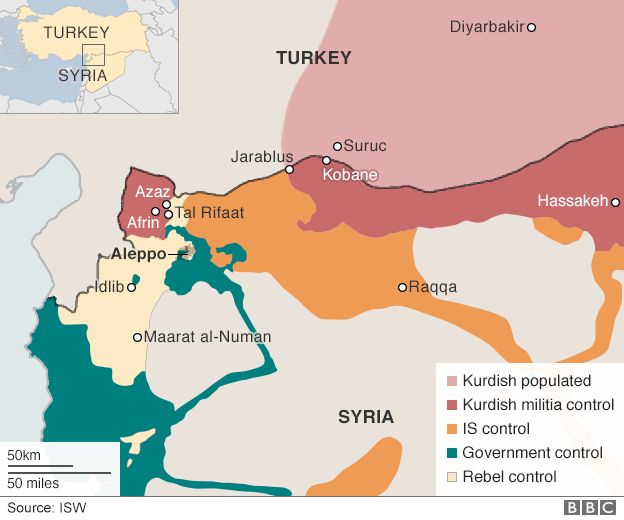
The PKK is considered a "terrorist" organisation by the EU and the US , but Turkey has failed to convince its Western allies to do the same for the YPG in Syria .
The US State Department and Pentagon both pressed Turkey to immediately stop shelling the YPG and urged Syrian Kurds not to expand their areas of operation.
The EU also called on Turkey to stop shelling Syrian territory and refrain from further complicating the efforts of world powers to halt the hostilities.
The UN has urged Turkey to comply with international law in Syria .
How have the Syrian Kurds reacted to Turkey 's bombardment?
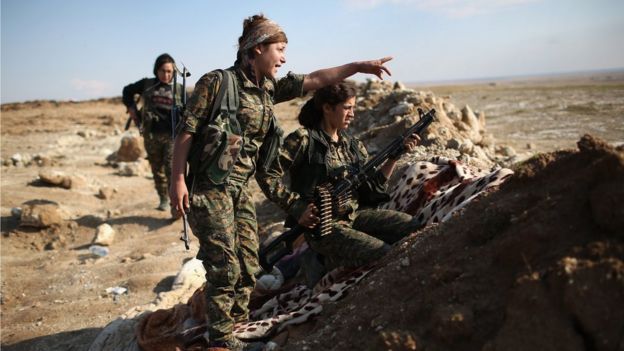 Getty Images
Getty Images
A Syrian Kurdish-led alliance, which also includes Arabs (Syrian Democratic Forces), has been advancing and taking over strategic areas from various armed Islamist groups despite Turkey 's ongoing bombardments.
The captured areas include Marea near the town of Azaz, which was included in Turkey's earlier plans for a "buffer zone" in northern Syria.
YPG spokesman Redur Khalil has said that the alliance's forces would advance until they "captured Azaz and expelled all the terrorists".
Why do Kurds accuse Turkey of backing IS and al-Qaeda-linked rebels?
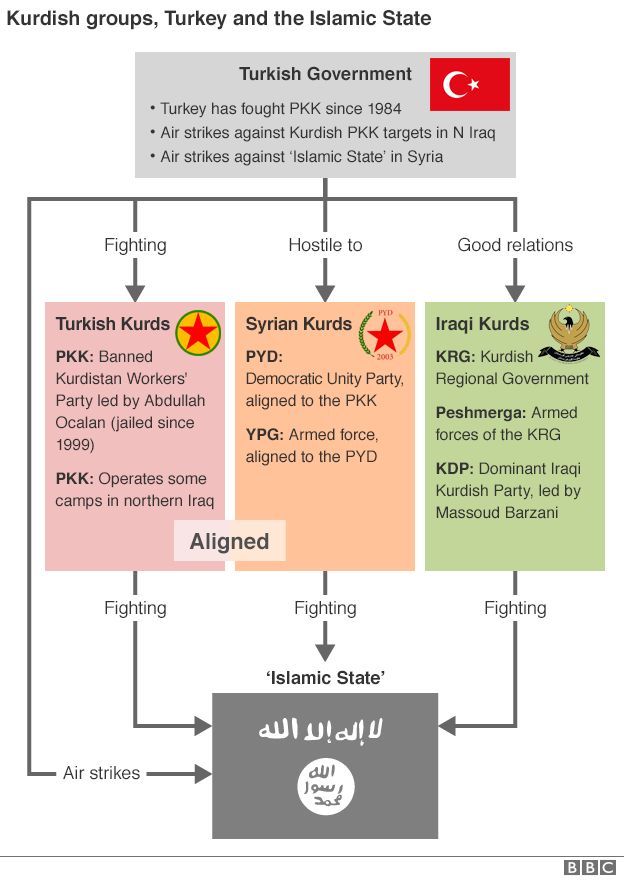
Kurds accuse Turkey of using the US-led coalition against IS as a cover to attack the Kurdish PKK in both Turkey and Iraq , and now against the YPG in northern Syria .
The US and EU consider the YPG as one of their most effective allies in the fight against IS.
The Kurds say that Turkey 's bombardment of their positions is helping IS to attack Kurdish-held frontline areas in Syria and Iraq .
IS militants attacked Syrian Kurdish villages south of Kobane a day after Turkey began shelling the YPG.
The Turkish bombardment has also angered Iraqi Kurds, since IS has increased its attacks against Iraqi Kurdish forces in the Makhmur area near the city of Mosul .
"Turkey shamelessly and openly backs IS and al-Qaeda terrorists against Kurdish freedom fighters," Sadi Pria, a top Iraqi Kurdish official in Irbil, has said.
What role does the PKK have in all this?
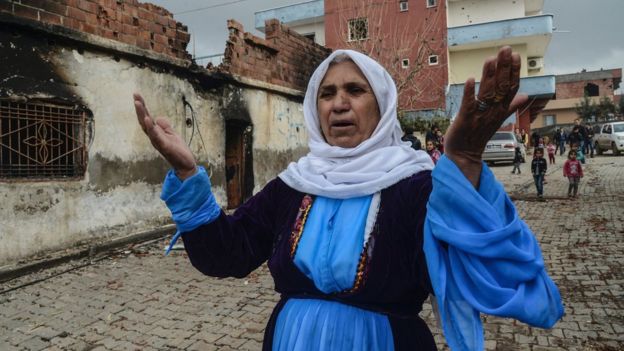 Getty Images
Getty Images
Syrian Kurds, including those leading the YPG, share the PKK's aspiration to establish an autonomous democratic confederation, but the YPG denies Turkey's claim that it is an extension of the PKK.
PKK leaders have repeatedly warned of a "total civil war" inside Turkey in retaliation for attacks against Syria 's Kurds.
Meanwhile, the Turkey-PKK battlefield has expanded from guerrilla fighting in the mountains to urban warfare in the heart of Turkey 's predominantly Kurdish cities,including in Diyarbakir .
Where is this heading?
Turkey says it will continue to bombard the Syrian Kurds as long as it feels threatened by them.
The YPG will most probably ignore Turkey 's threats and continue its advances to capture more areas. In July 2015, the group took over the strategic border town of Tal Abyad despite Turkey 's threats not to do so.
On the other side of the border an escalation of the Turkey-PKK conflict is highly likely in the form of urban and rural warfare, especially after winter.
BBC Monitoring reports and analyses news from TV, radio, web and print media around the world. You can follow BBC Monitoring on Twitter and Facebook.
No comments:
Post a Comment